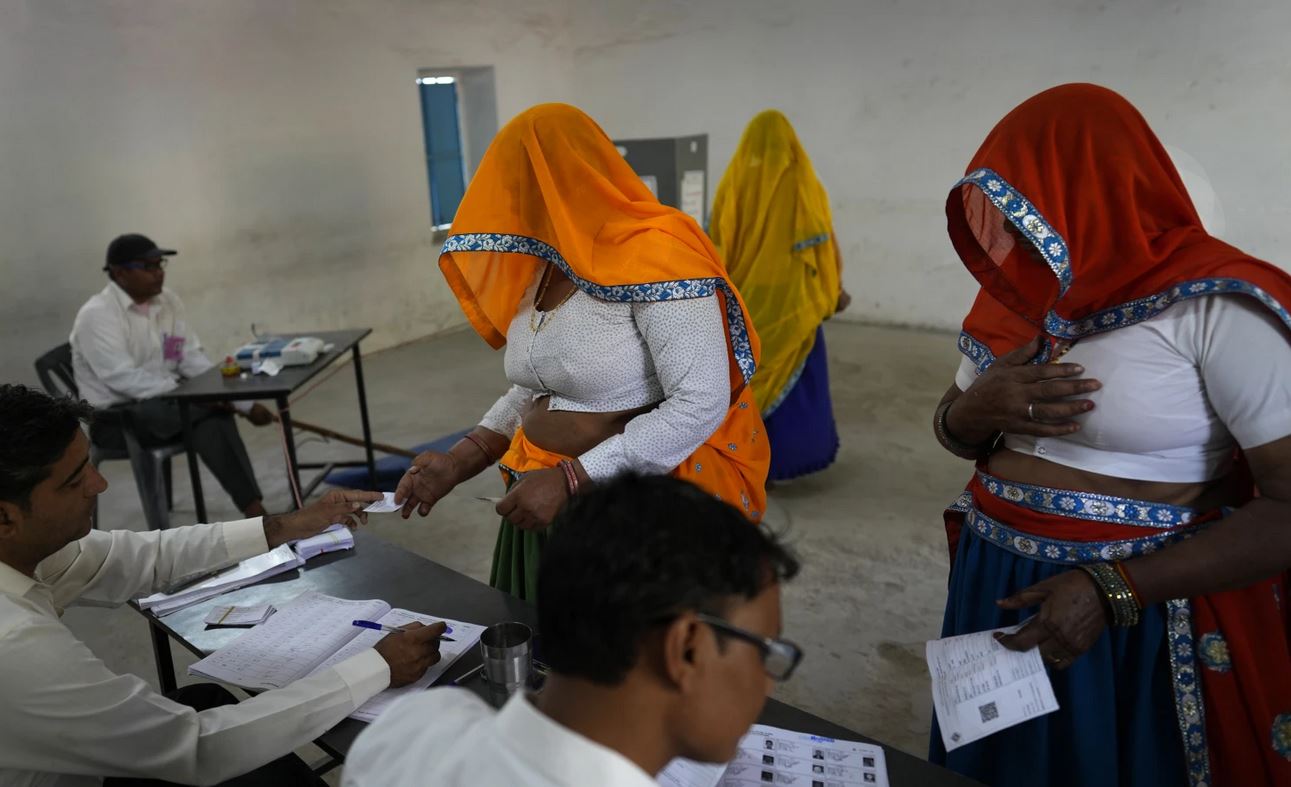
OR
Opinion
Menstrual Cycle in Nepal: Curse to Celebration
Published On: September 19, 2021 07:15 AM NPT By: Smriti Ranabhat

More from Author
In recent times, celebrating menstruation has been growing around the world. In some countries, families and whole communities celebrate a girl’s first period as her entry to womanhood.
Nearly a year ago, a photo celebrating a girl's first menstruation was widely circulated on social media. Samir Pariyar, an activist of 'Gifts for Girls' had celebrated his sister's first period by cutting a cake. He posted some photos on social media with few words. His post reads “Working in the field of menstruation, I am moving forward with the belief that change should be brought in the new generation and that change should start from myself. Today is the most important day for our family, my sister has stepped into the new stair of life. That is, my sister's menstruation started today. Menstruation is not a sin, it is a gift. So, today, on the occasion of my sister's first menstruation, we celebrated her happiness by cutting a cake.”
Pariyar’s post was followed by a lot of discussions about his action on social media. His action was trapped between both positive and negative responses from other people. Those different opinions in the comments below his post attempt to show the picture of Nepali society in the subject of menstruation. Some people follow menstrual superstitions, some are focused on breaking the bars while some are moving on the path of progression.
First period stories
Period experiences differ from woman to woman. Geography, family background, education, beliefs and many more are the foremost factors to determine a woman’s living. Advocate Sarita Tiwari lived in her neighbor's home for 15 days when she got her first period. Sarita stayed there far from her family and far away from the rays of sun. Sarita recalls - “When I got my first period at the age of 12, my mother gave me a piece of cloth. I was unaware about the way to use that. Before understanding the method to use the cloth, I was taken to my neighbor’s home in the name of culture. I ate, slept and breathed there for 15 days.” After returning from there, she got new clothes, she remembers, “It was a new red gown.” Her mother was progressive in other issues around her but too restrictive in the matters of the period culture.
Author Saguna Shah’s story is different from that of Sarita Tiwari. She was not kept aloof in a closed room; there was no restriction on her to go to the kitchen or meet anyone. Sharing her first experience, Shah says - “I was in grade seven. I was playing with my maid's daughter when she saw blood stains on my dress. She told me and I went to my daddy. He calmly told me to tell mom. My mother sat with me and said that my body was going through a change.” Her mother taught her to wear the pad and taught everything related to menstruation.
Similarly, Sanjita Tharu’s first period was taken normally by her family. She was not bound with restrictions at home. Sanjita says, “Socially, I didn’t have to suffer but the lack of awareness became my enemy during my first menstrual cycle. I didn’t have any knowledge about menstruation before. Accepting the changes immediately was difficult for me.” Her community’s perspective was different from others around her. “Our community restricts a menstruating girl from going to the temple and worshiping. Except that, everything is like normal days,” she says.
In Asian countries, cultures, traditions and religions push women to the lines of suffering. Some families understand the phenomenon while some are superstitious that one needs to be revolutionary for a change. Amrita Adhikari fought her first battle with her family for her first step toward a change. She shares, “It was during my SLC. I was on the way to the examination center when I got my first period. One of my friends bought a pad for me and she taught me to wear it. When I returned home, I informed my mother that I got my period. She told me that I need to go to another person's home. I didn’t agree with her and fought my first battle.” In her society, when the first menstrual cycle occurs, a girl cannot see her family’s males. Since Amrita didn’t listen to her mother, her mother sent her brothers to mamaghar (maternal uncle’s home) instead.
A matter of celebration
In recent times, celebrating menstruation is growing around the world. In some countries, families and whole communities celebrate a girl’s first period as her entry to womanhood. When a girl bleeds for the first time in Japan, her family celebrates her menstruation by eating a traditional red colored dish called sekihan made with sticky rice and beans. The color of the dish symbolizes celebration and happiness for everyone. Likewise, Fiji celebrates girl’s first period with a feast.
Unlike the celebration in other countries, Nepal used to follow the chhaupadi pratha in some parts of the country as early as a few years back. They say it is still followed in some parts of the country. It is the tradition of sending women and girls to outdoor huts called ‘chhau ghar’, when they get their periods. The Supreme Court of Nepal officially banned the practice of Chhaupadi in 2005. Again, on August 9, 2017 a new law was passed criminalizing the Chhaupadi tradition.
Some steps taken by a few people leave higher impacts. Mr Pariyar’s pace toward celebrating his sister’s menstruation was for teaching his sister the true side of menstruation. He says, “A child’s brain is empty. He/she knows what they learn from us. I believe if we become able to teach our juniors that menstruation is happiness and celebration, they will not have to grow up with wrong beliefs about it.” He adds, “I wanted my sister to take menstruation as a blessing like her birthday, not as a matter of dirt or sin.” Amrita Adhikari has a daughter who is six months old. Amrita says, “I will give her everything she wants. I will try my best to teach her every little thing that we need and happen in our life.” “I will obviously give her some gifts in her first period,” she adds.
Saguna Shah emphasizes, “Rather than gifts we need to teach girls about the pros and cons related to menstrual hygiene.” She says, “Change starts from home. I believe every home needs to educate their girls. It will be the best celebration that stays with her for her lifetime.”
Promoting dignified menstruation
More or less, we can see differences around us. The bars and barriers are being broken with the weapon of education. Some years ago, women used to suffer from various problems because of unhygienic period routines. People are slowly accepting menstruation as a natural phenomenon but still some corners of our country take menstruation as a sin of the previous life.
Advocate Sarita Tiwari is suffering from anemia. She was shocked when the doctor pointed out menstrual bleeding as the cause behind her anemia. She says, “I am an educated woman but still I was unaware about the things I faced earlier. We, who call ourselves revolutionary, do not know well the things we have to know; we can clearly imagine the picture of rural areas.”
Menstrual cramps and mood swings trouble a woman in many ways. Advocate Tiwari is planning to knock on the court’s door with the demand of 3-4 rest days for every working woman during their periods. It is challenging for a menstruating woman to work continuously, the authorities concerned have to think in favor of these women.
Activists and organizations are working in the field of promoting dignified menstruation. Radha Paudel Foundation, Gifts for Girls Campaign and many other organizations are actively working to shed light on menstrual health education. Activist Pariyar says, “We are working to promote home-made pads and educate young girls about menstrual hygiene. We are also trying to address dignified menstruation at policy making.”
Societies are welcoming the changes but still, we have not succeeded. Our fear of hurting our seniors is stopping us from going for a complete eradication of menstrual superstitions. Many of the modern women share that they don’t follow any superstitious belief alone but when they visit their elders, they follow everything the old generation wants them to follow.
Our generation holds the responsibility of breaking the chain that passes menstrual superstitions from generation to generation. Education and acceptability of natural phenomena will surely wipe out the wrong practices.
You May Like This

Celebrating womanhood
We don’t have much to celebrate for 109th International Women’s Day, for violence against women continues unabated ... Read More...

Deconstructing Nepali womanhood
Nepali women are fighting against all odds and breaking all forms of social barriers. It is unfair to portray them as... Read More...

We all need Nepal
Nepal doesn’t need me or any foreign-endorsed people like me. It’s us who need Nepal, to experience, to love, to... Read More...

Just In
- Over 200,000 devotees throng Maha Kumbha Mela at Barahakshetra
- Indians vote in the first phase of the world’s largest election as Modi seeks a third term
- Kushal Dixit selected for London Marathon
- Nepal faces Hong Kong today for ACC Emerging Teams Asia Cup
- 286 new industries registered in Nepal in first nine months of current FY, attracting Rs 165 billion investment
- UML's National Convention Representatives Council meeting today
- Gandaki Province CM assigns ministerial portfolios to Hari Bahadur Chuman and Deepak Manange
- 352 climbers obtain permits to ascend Mount Everest this season







_20220508065243.jpg)











Leave A Comment